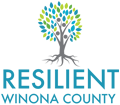Visit ACEs Connection – a one-stop-shop for resources on resilience and trauma-informed practice, including innovative ways communities and organizations are using these tools across the world!
The resources below are downloadable, printable, and available for general sharing and non-commercial use, with full credit given to the respective creators.
GENERAL PUBLIC
ACEs questionnaire – The 10-question tool used to determine childhood trauma that launched the ACEs (Adverse Childhood Experiences) movement.
CAUTION: This questionnaire can easily trigger trauma responses and memories; please use with care and do not distribute this to others, including in an educational setting, unless you have been trained in its delivery and use and are capable of providing support.
3 Realms of ACEs – A visual handout of how Adverse Childhood Experiences combine with adverse community and environmental conditions and impacts to create challenges for individuals and communities.
How to Support A Trauma Survivor – A clear infographic showing tools and ways of supporting someone who has experienced or is experiencing trauma.
Know your ACE number – A general look at the experiences and traumas that go into an ACEs (Adverse Childhood Experiences) score, and how they contribute to challenges in adult life.
Physical Impact of Trauma – A visual look at how experiencing trauma creates very real changes and challenges to the body across all systems, from the brain to the nervous system to organs and even cells.
Understanding ACEs – A visual two-page handout that clearly and easily explains what ACEs (Adverse Childhood Experiences) are, how they contribute to challenges for kids and adults, and ways of building resilience.
FAMILIES
How to Build Resilience In Kids – A one-page handout with an exercise for families to understand how to build resilience, and identify specific ways their family can support each other.
Parenting to Prevent And Heal ACEs – Great visual two-page handout on practical, concrete tools for parents to use with children (or other adults) to skillfully respond to those who have experienced trauma and build resilience.
Resilience Guide For Kids and Families – Great list focused on the “7 Cs” of resilience, along with tools for building resilience in kids and families. Back page has a comprehensive set of website links to learn more.
Trauma-Informed Support For Children – A poster-style graphic on how parents, educators and others can use straightforward strategies and skills to support children who are suffering, and help them proactively build resilience skills.
EDUCATORS/PROVIDERS
10 Key Ingredients For Trauma-Informed Care – A printable 11×17 poster that describes what trauma is, how it can be treated, and best practices for schools, healthcare facilities, and others.
Trauma Informed Care Infographic – A visual flow chart, especially for educators, counselors, therapists, doctors and others, at how to transform more than 20 unskillful approaches and phrases to those experiencing trauma to skillful trauma-informed care and words.
